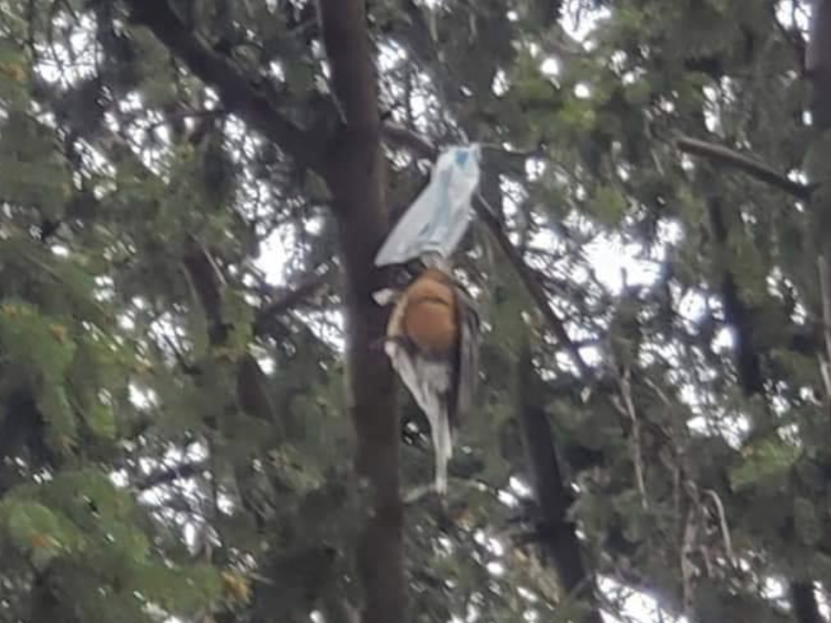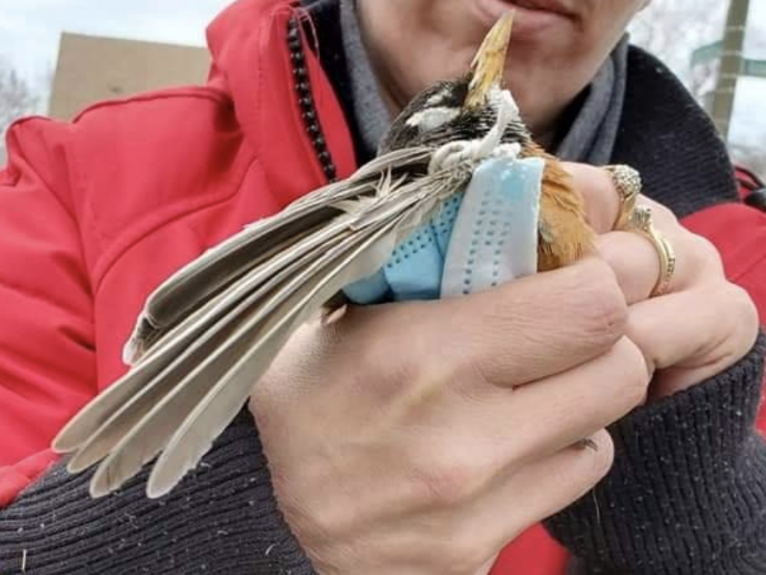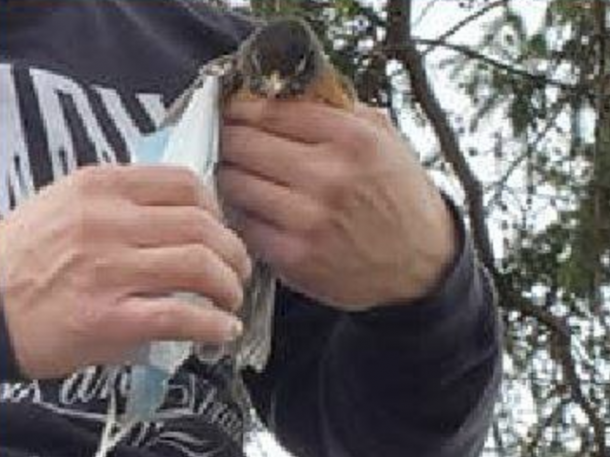Bird dies after getting tangled in coronavirus face mask
Environmentalists warn about the risks to wildlife from discarded masks and plastic gloves used to protect against the coronavirus
Your support helps us to tell the story
From reproductive rights to climate change to Big Tech, The Independent is on the ground when the story is developing. Whether it's investigating the financials of Elon Musk's pro-Trump PAC or producing our latest documentary, 'The A Word', which shines a light on the American women fighting for reproductive rights, we know how important it is to parse out the facts from the messaging.
At such a critical moment in US history, we need reporters on the ground. Your donation allows us to keep sending journalists to speak to both sides of the story.
The Independent is trusted by Americans across the entire political spectrum. And unlike many other quality news outlets, we choose not to lock Americans out of our reporting and analysis with paywalls. We believe quality journalism should be available to everyone, paid for by those who can afford it.
Your support makes all the difference.Environmentalists’ warnings about the risk of discarded coronavirus protective gear to wildlife and the environment have been made evident in a photograph of a bird which appears to have died after becoming entangled in a face mask.
The photos were posted to Facebook last week by Sandra Denisuk of British Columbia after she found the bird with a blue medical face mask wrapped under its beak and wing. The mask appeared to have blown into a tree.
Ms Denisuk wrote: “DO NOT THROW AWAY YOUR MASKS OR GLOVES ON THE GROUND. This bird is innocent victims of mans carelessness. Animals can’t help themselves or each other, look what we are doing to them. This bird was caught in a tree for two days. The masks elastic ear material was also wrapped around its neck....please share this. Unfortunately the bird did not make it. Gloves are also dangerous for animals.”
The images were shared by Maria Algarra, founder of conservation group, Clean This Beach Up.
She told The Independent: “The plastic crisis affects every single one of us, it litters our beaches, pollutes our waterways, and chokes our wildlife. We must protect those who can’t speak for themselves, we must continue to spread awareness and educate our communities before it’s too late.”


Earlier this month, Ms Algarra launched 'The Glove Challenge' on Instagram as a way of raising awareness and education about the dangers of littering facemasks and gloves.
The bright colours of latex gloves and mistakes can be mistaken as food by birds, turtles and other marine mammals putting them at risk of severe injuries and death.
New York Governor Andrew Cuomo issued an executive order last week that came into effect on Friday that New Yorkers must now wear a mask when out in public in situations where social distancing isn’t possible.
The CDC advises wearing cloth masks in public (although President Trump says it’s not mandatory and he “doesn’t see it for himself”) due to the concern that Covid-19 can be spread by people who are infected but not showing symptoms.
On social media, pictures of bright blue gloves and crumpled masks littering streets, shopping carts, parking lots, beaches and green spaces are being posted around the world. It’s left to sanitation workers and grocery story staff, those essential but underpaid frontline employees, to pick them up.
Those not picked up can be caught by a gust of wind or washed down drains, ending up in the ocean and waterways.
Not only is there a potential health risk of dropping used masks and gloves during the pandemic but many contain materials that do not recycle and are not biodegradable. Surgical masks are made using non-woven fabrics including plastics like polypropylene.
According to NOAA, plastic wreaks havoc on marine ecosystems. As plastic swirls around in the water, much of it breaks down to tiny pieces, called micro-plastics.
The Ocean Conservancy discovered that many fish species consume plastics debris, confusing it for real food and estimated that at least 600 different wildlife species are threatened by the pollution.
There is also a human health risk from plastic entering the food chain with nearly a billion people around the world consuming seafood as their primary source of protein.
Used masks and gloves add to an already significant problem: At least 8m tons of plastic end up in the oceans every year, making up 80 per cent of all marine debris, according to the International Union for Conservation of Nature.


Join our commenting forum
Join thought-provoking conversations, follow other Independent readers and see their replies
Comments